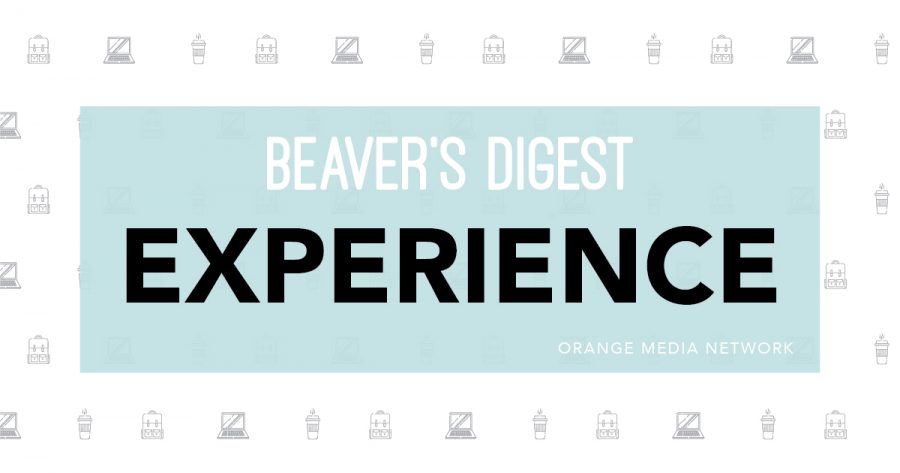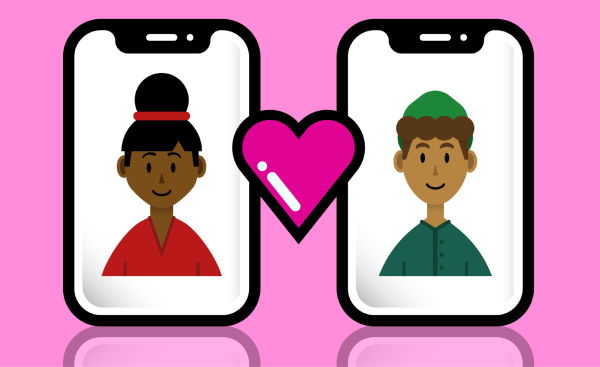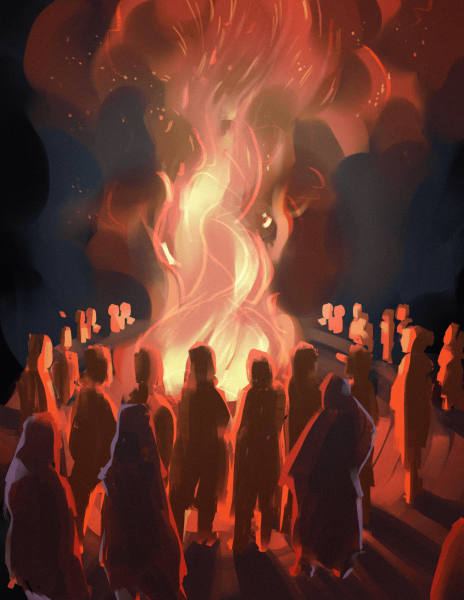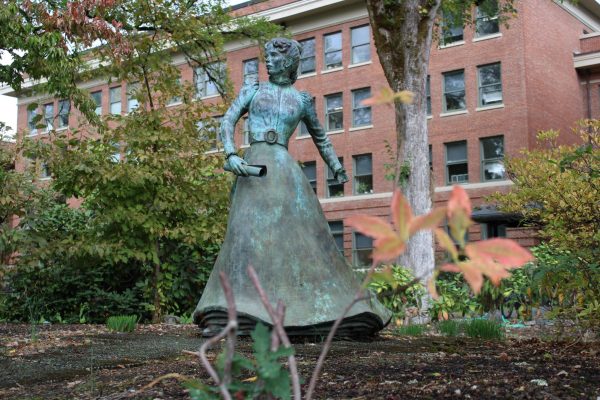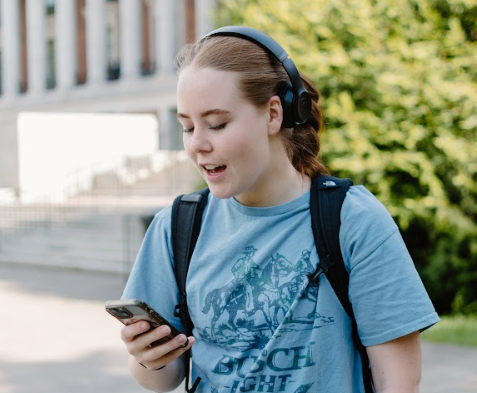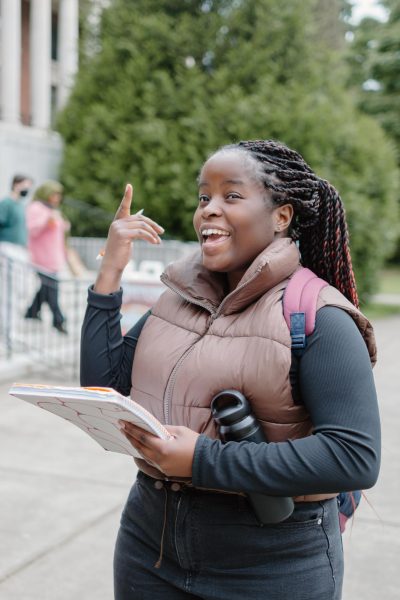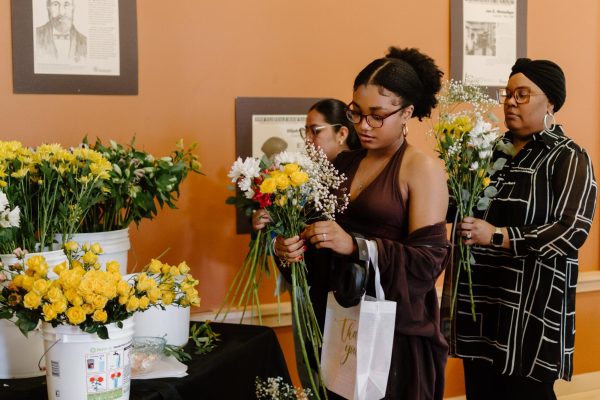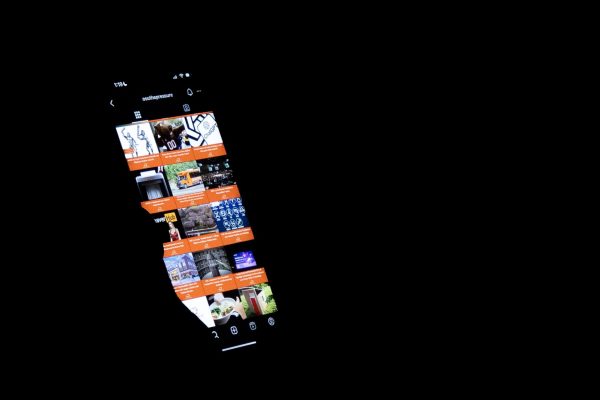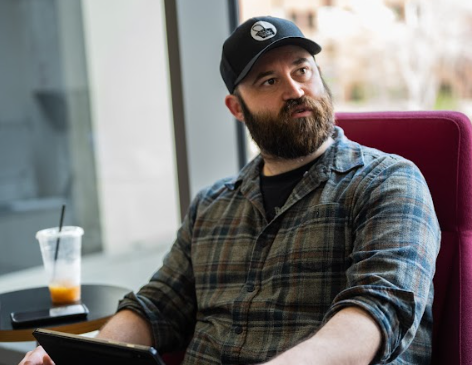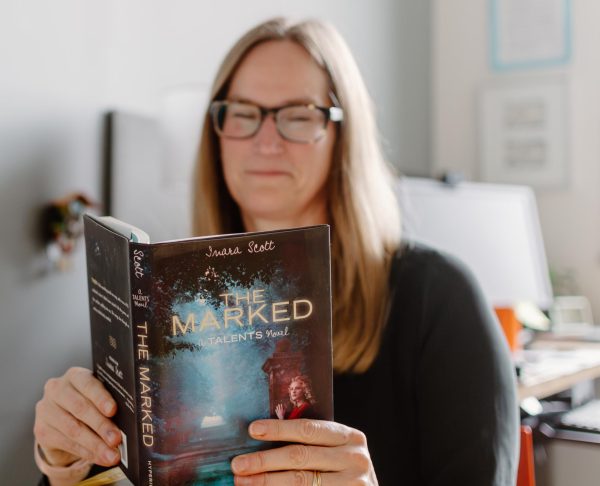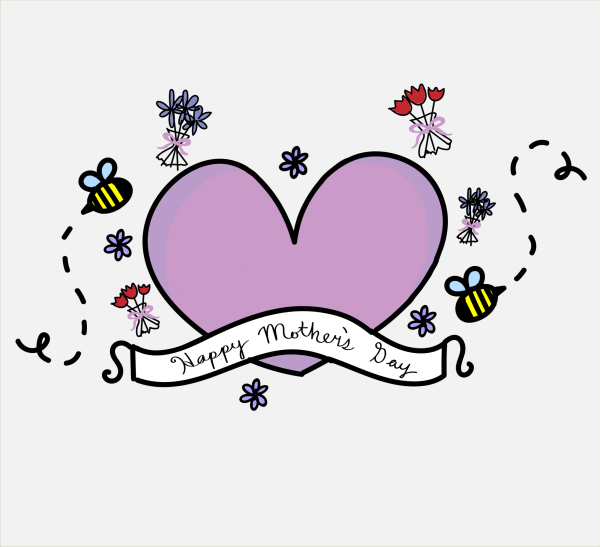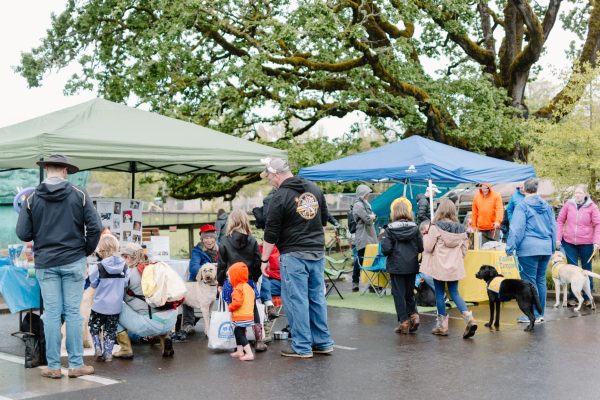Opinion: Think before you speak
February 18, 2019
Psychologists and linguists have proven time and time again that what people hear on a daily basis can affect our mood, wellbeing and sense of self. If a child is told every day that they aren’t good at reading, they aren’t going to want to read, because they think they’re bad at it. Then they will never improve because they aren’t reading. It’s important to be aware of what you say because you never know who will hear you.
There are a handful of words that I hear people using that worry me. For some, it might not be intentional, but a matter of upbringing. For others, they know exactly what they’re saying and they either don’t care or want to stir the pot.
Before I go into a few less obvious words, I’m just gonna say it: don’t ever say the n-word if you aren’t black. Don’t rap it, don’t sing it, don’t say it because your black friend gave you a pass, don’t say it with or without the hard r. I don’t care, just don’t say it. If you’re a person of color that is not black, you shouldn’t be saying it either. It’s not your word to reclaim.
One term that I have learned more recently is offensive is “gypsy.” This word does not refer to a free-spirited, adventurous nature lover. It is actually a slur that refers to the Romani people, who are a nomadic ethnic minority that have been discriminated against for centuries. Additionally, when you say that you have been gypped, you’re perpetuating the stereotype that the Romani people are thieves and cheats.
The next word I will be addressing is the r-word. This word should be abolished from your vocabulary because it dehumanizes people with intellectual disabilities. It is much more appropriate to refer to someone as “a person with a disability” because it emphasizes that they are human first. It is important to refrain from referring to someone as being mentally retarded, because by doing that you’re reducing them to their disability. It is also an extremely outdated word, just because pseudo-scientists used it in the 1960s doesn’t mean we have to now.
Another outdated word that we should not be using is “midget.” This was the word used to showcase people of short stature who were on display at fairs and festivals. It is now widely considered to be a slur and was never an official term used by those affected with dwarfism. Acceptable alternatives include little people, people with dwarfism, or people of short stature.
The next word I will be tackling is “ghetto.” The true origin of the word is unknown, but in Europe in the 16th and 17th centuries and again during the rise of the Nazi party in Germany, it referred to the area of a city that the Jewish community was restricted to. More recently, it is used to describe urban communities in the U.S. where minority groups live due to social or economic pressure.
Using terms like “ghetto,” “hood,” “ratchet” and “thug” are problematic because they associate characteristics like criminality and poverty with blackness. It might not be what you’re going for when you use those terms, but because of our country’s racist past and the fact that these words have been used for decades in a racist way, there is a permanent connotative meaning that we cannot get around.
What I want people to take away from reading this is that you need to think about what you’re saying. Even if you don’t mean to offend people when using words like the ones mentioned above, the toxic meanings cannot be separated from the words themselves. Continuing to use derogatory terms just because you don’t want to adjust along with society is stubborn and tone deaf.
The purpose of social justice isn’t to punish you for the mistakes you make, like using a word that you didn’t know was offensive. What’s important is how you move forward. Will you continue to use the word because it doesn’t affect you or will you think critically about your vocabulary and the effect your words have?
I encourage everyone to do their own research because you need to think critically about the information you take in. This is an opinion piece after all. It’s important to educate yourself on these topics and the internet can be a great resource. While hearing from marginalized people firsthand in person is very valuable, it is not their job to educate white cishet folks on equality. Plenty of scholars, organizations, movements and marginalized people have put the information out there so we can educate ourselves. I imagine that the 15 percent of people in Oregon who don’t identify as white get tired of providing their explanations.


